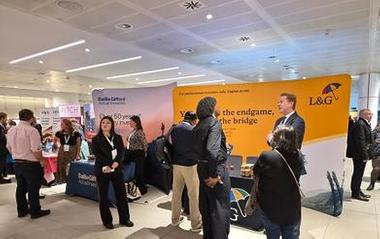Charities are being caught between “compliance and aid work” amid instances of religious organisations being debanked, an event has heard.
Speaking at Civil Society Media’s Charity Finance Summit in London yesterday, Abdulsami Arjumand, head of systems change at Muslim Charities' Forum, said faith charities could take “more proactive approaches” to building relationships with banks.
But he warned that issues with the banking system and culture were causing significant problems for many organisations.
“Humanitarian charities are facing banking barriers because banks are adverse to giving large transactions to countries they deem a risk, like Syria,” he said.
“Charities are struggling to access banking services. Because of this, many charities are caught between compliance and aid work.
“Rather than trying to make payments through formal methods, if banks refuse to transfer money, charity leaders will often send their own money across to countries.”
He said that accounting is made more difficult for these charities because they are debanked on a regular basis.
In a survey conducted by the Muslim Charities’ Forum, many respondents found it difficult to open a bank account, while two in five had experienced a full withdrawal of banking services.
Risk-averse banks
Arjumand said Muslim charities in particular have reported issues with being debanked over the last two to three decades – especially following the attack on the World Trade Centre in New York in 2001.
He also said that these charities are often exploited by bad actors such as terrorist organisations that operate in countries where aid is being delivered.
The changing political landscape has also impacted how humanitarian and faith charities operate their bank accounts.
“The problem isn’t just in the rules, it’s the culture that’s been born out of them,” Arjumand said.
“Banks determined to avoid any heavy fines from the US treasury or the FCA act with very strict risk appetite and often act in what has been described as rash or reckless.”
Despite the problems many of these charities face, Arjumand offered some hope in building better relationships and understanding.
“We can take more proactive approaches to actually build relationships with banks.
“It is about increasing the competencies both in Islamic faith but also charitable structures, to ensure there are stronger and fairer mechanisms to respond to suspicious activity rather than risk broad brushing all.
“There is a balance to strike between securing aid and fighting financial crime. At the moment, we are far from that equilibrium.”
Editor’s note: The headline and main body of this story were amended on 21 October to better reflect the speaker’s comments.











